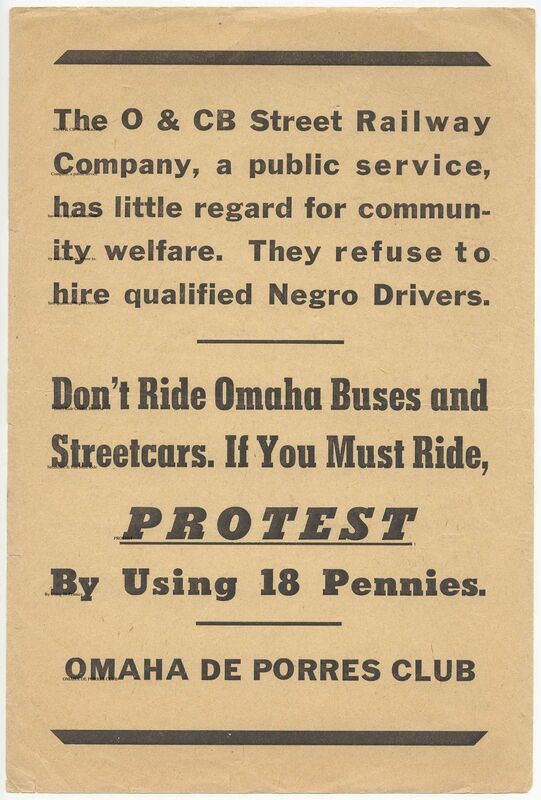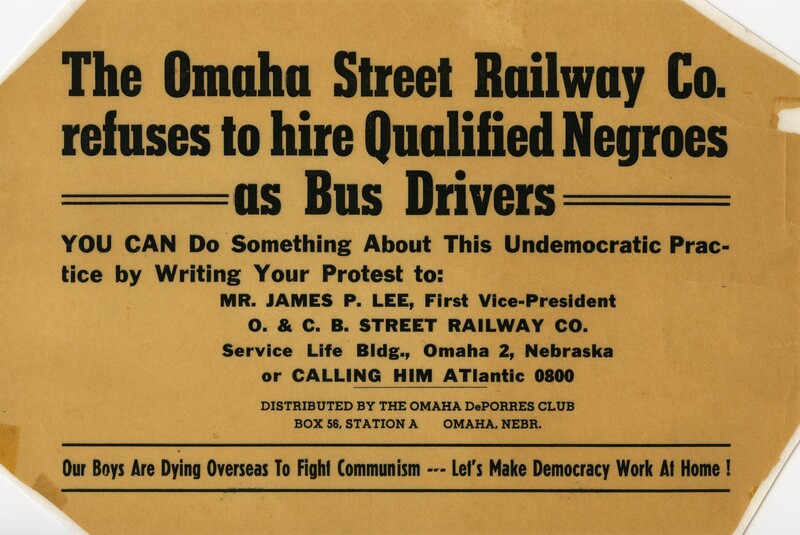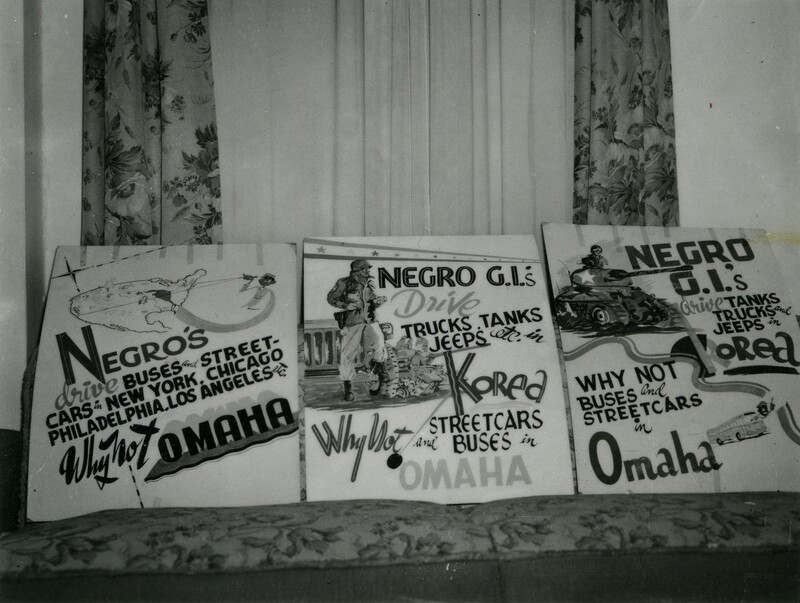Omaha-Council Bluffs Street Railway Boycott
The DePorres Club's campaign against the Omaha & Council Bluffs Street Railway Company, with preliminary efforts dating back to January 1948, would become one of its longest and most challenging efforts. Although it technically began before the Edholm-Sherman Laundry boycotts, the campaign against the Omaha & Council Bluffs Street Railway Company would not conclude until 1954.
In May 1948, eight members of the DePorres Club met with the Street Railway Company to discuss the company's history of refusing to hire Black streetcar operators. Fred Hamilton, the company's vice president, defended their hiring practices by claiming that the Transport Workers Union barred the company from assigning Black drivers to "safe" routes. According to Hamilton, if a white female passenger were alone on the bus with a Black driver, the driver would likely assault the woman. With the winter months approaching and a promising Fair Employment Practices Commission (FEPC) proposal in the Nebraska legislature, the Club took a step back from its discussions with the Street Railway Company.
The FEPC proposal ultimately failed, and in spring 1949, the DePorres Club took formal action, kickstarting a petition opposing the company's practices. Chet Anderson, a Club member and English professor at Creighton University, chaired the petition committee. After five months of volunteers distributing the petition, the Club gathered 2,432 signatures, endorsed it, and sent it to the Street Railway Company.
By summer 1951, there was still no change in the company's hiring practices. On the heels of their successful boycott against the Edholm-Sherman Laundry, the Club revived its efforts against the Street Railway Company. When further communications with the Street Railway Company failed to receive responses, the Club started distributing handbills criticizing the company's refusal to hire qualified Black drivers.
Following a series of other local community initiatives, including the successful Reed's Ice Cream boycott, the DePorres Club achieved a breakthrough in its efforts against the Street Railway Company in July 1954. Denny Holland appeared on Here's Allen, a popular local news and commentary show with an estimated 35,000 viewers. Accompanied by James Copeland and Club member Harold Tibbs, Holland explained to viewers how the Street Railway Company had ignored or refused all of the Club's requests to change hiring policies. Copeland and Tibbs shared how they applied for jobs with the company in 1948 and were denied employment based on the color of their skin, exposing many white viewers to a local example of institutional racism for the first time. Within a week of this appearance, the Omaha & Council Bluffs Street Railway Company agreed to hire three Black drivers. The company claimed that their hiring change was not a result of the DePorres Club's efforts, instead stating that Copeland and Tibbs had not been hired because they had not passed the evaluation tests given to new employees. Copeland and Tibbs responded by saying they had never been given such tests.
The DePorres Club's success against the Omaha & Council Bluffs Street Railway Company was further solidified when the Omaha City Council voted in favor of adding a non-discrimination clause to a new, restructured Street Railway Company franchise. In late October 1954, the Club voted to conclude its six-year battle against the Omaha & Council Bluffs Street Railway Company. A few weeks later, an issue of the Omaha Star included a picture of four newly-hired Black drivers at the Street Railway Company. With their longest campaign finally behind them and membership dwindling, the DePorres Club members voted to temporarily disband, intending to reconvene the following January.
For more information, see Holland (2014), Chapters 18, 19, 23.


